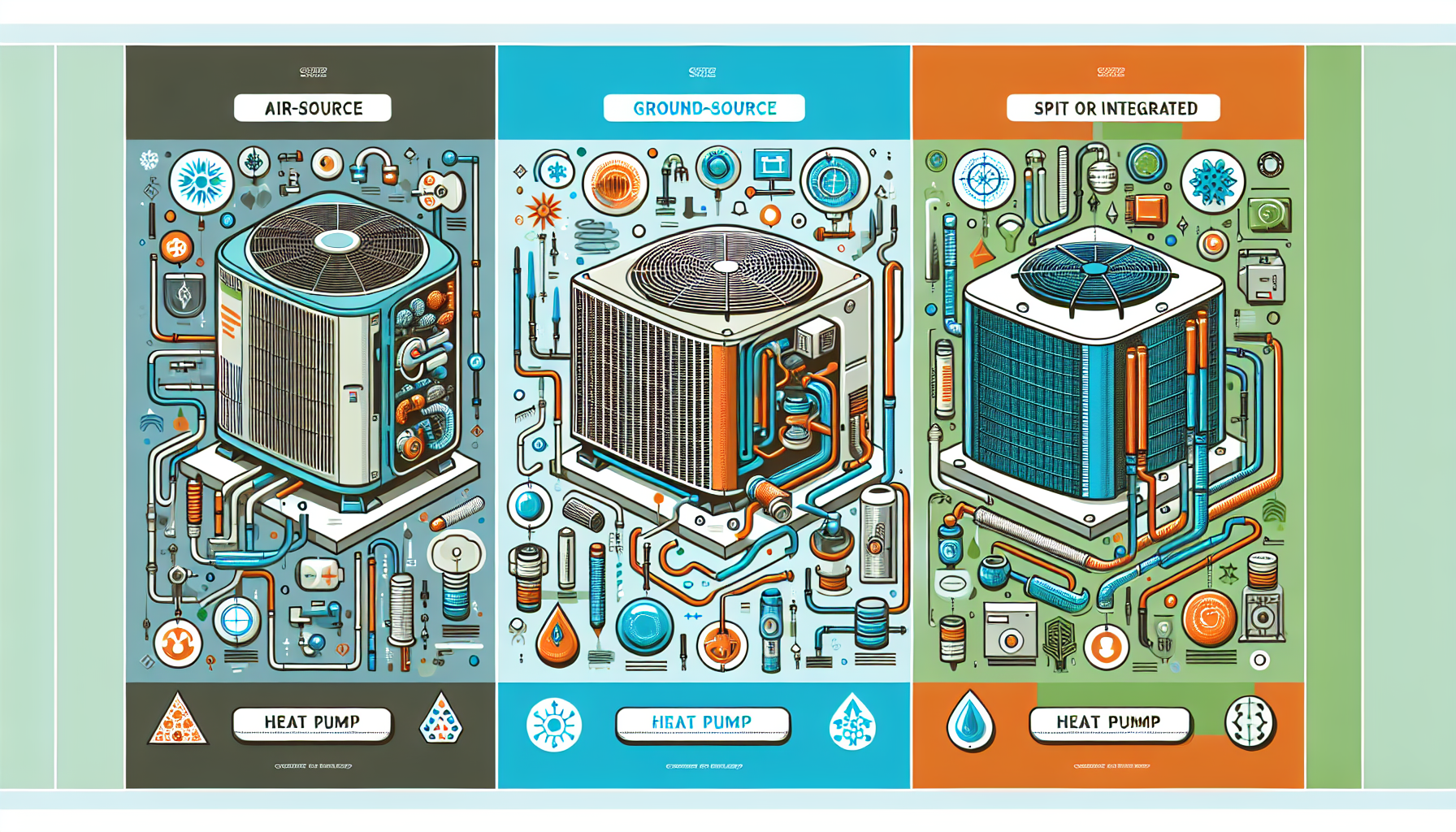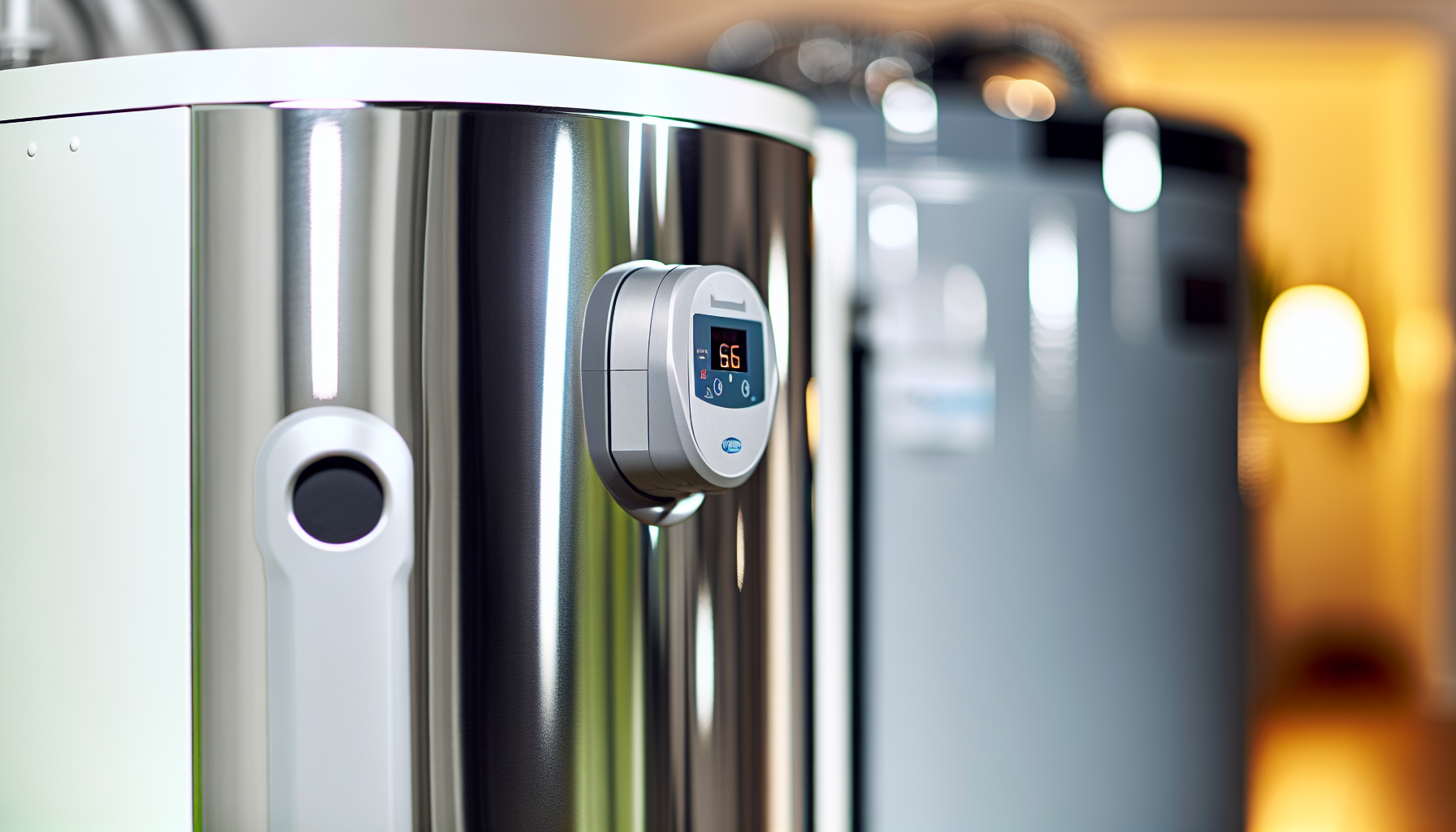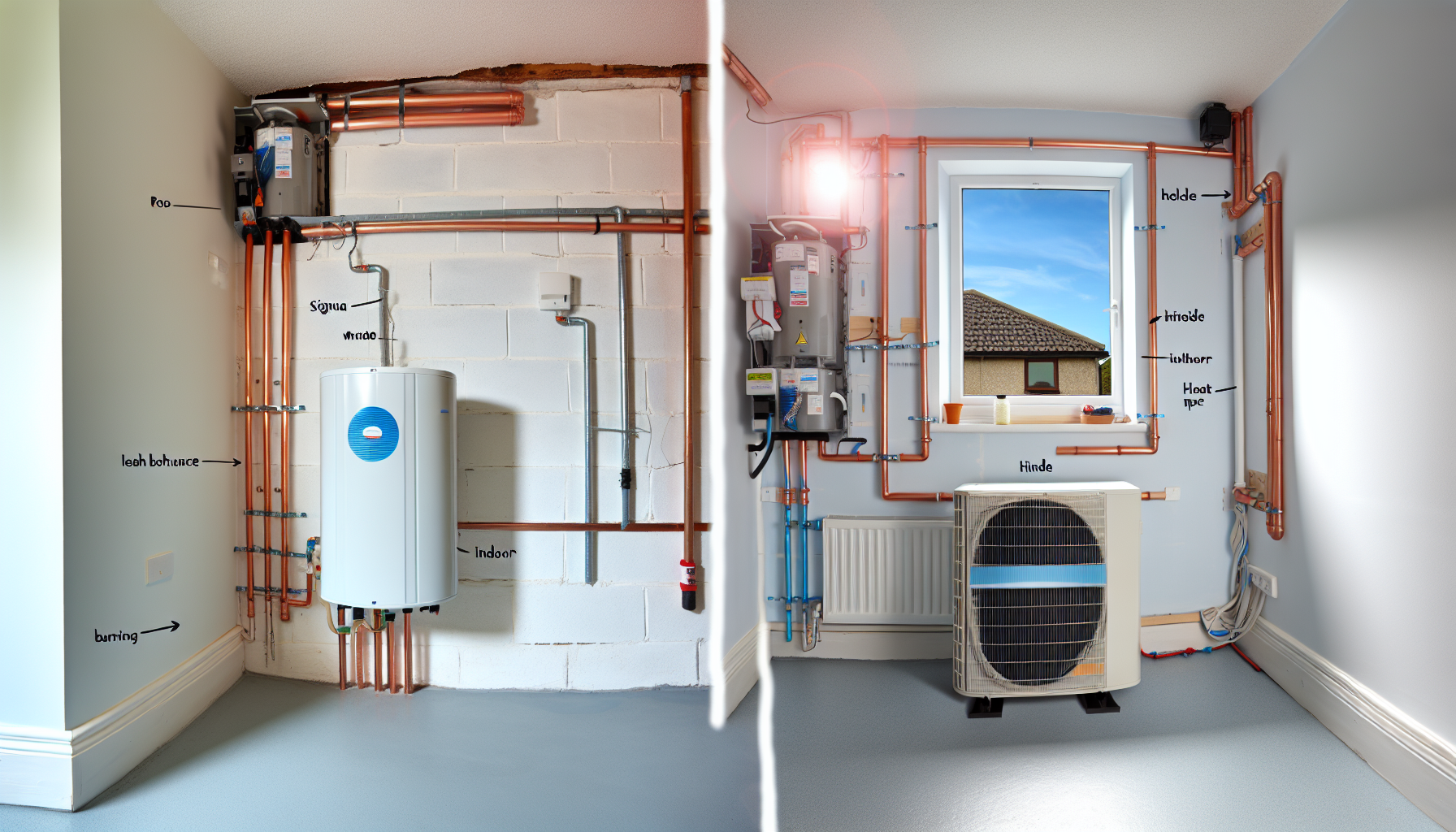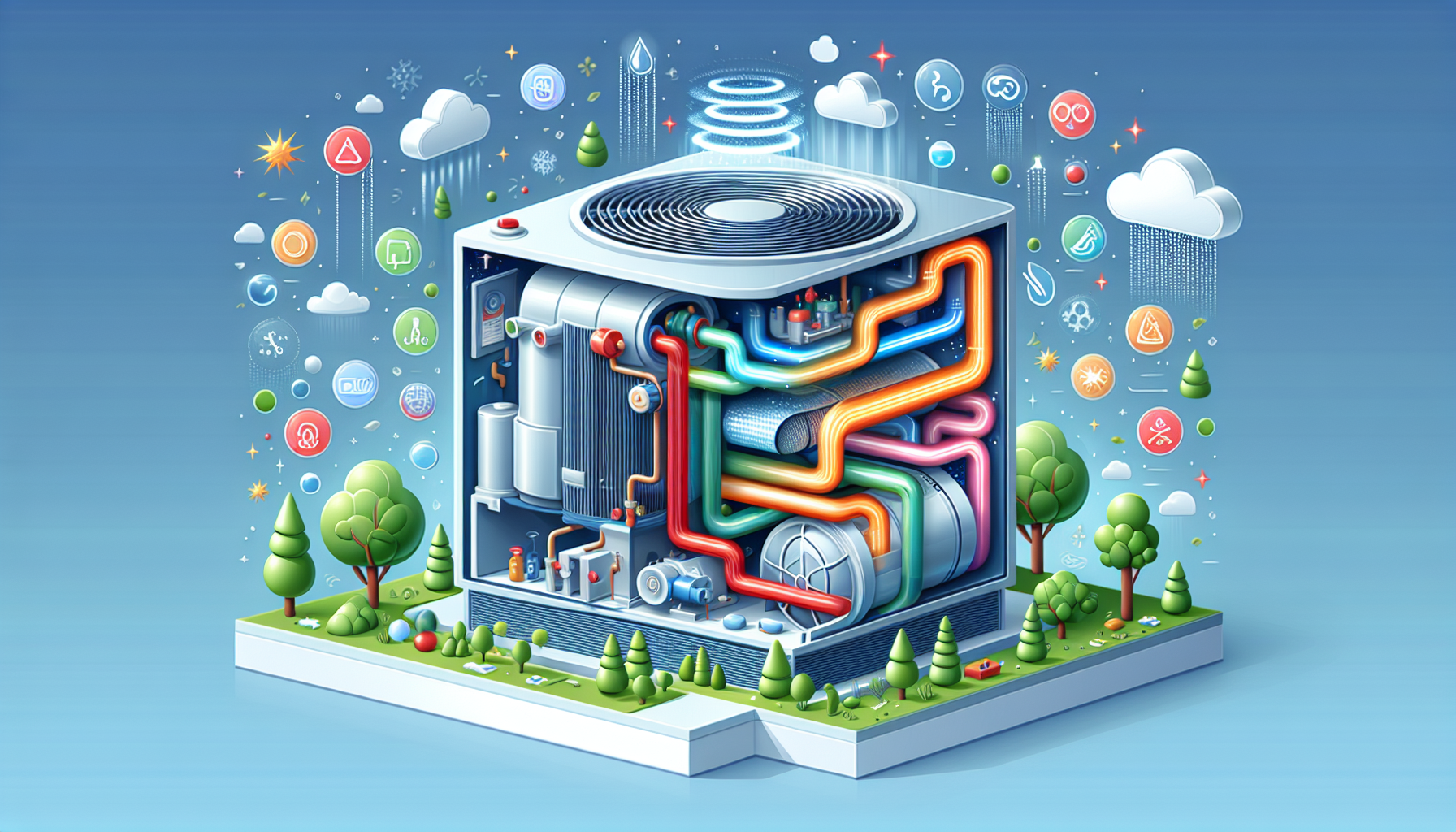Discovering What Is the Perfect Heat Pump Hot Water System for a Family
If you’re wondering what is the perfect heat pump hot water system for a family, consider this your roadmap. Distilling down the key elements that influence your decision—household size, energy efficiency, and operating costs—we sift through the technical jargon to deliver straightforward, practical advice. Without diving too deep into the details, we set the stage for you to make an informed decision that matches your family’s lifestyle.
Key Takeaways
-
The ideal heat pump hot water system for a family should be selected based on the household size, water usage patterns, peak demand periods, and potential future needs to ensure consistent supply during high-demand times.
-
There are several types of heat pump hot water systems to consider, including air-source and ground-source heat pumps, along with split or integrated systems, and the choice should factor in efficiency, climate conditions, installation costs, and household requirements.
-
Operational cost and energy efficiency are determining factors in selecting a heat pump hot water system, with considerations like the Coefficient of Performance (COP), the possibility of using off-peak tariffs and the integration of renewable energy sources like solar panels to optimize savings.
Understanding Your Family's Hot Water Needs

The selection of an ideal heat pump hot water system begins with a clear comprehension of your family’s hot water usage. After all, what use is a high-performance system if it cannot keep up with the morning showers or the evening baths?
Household size and usage patterns
The household size and daily hot water consumption patterns significantly influence the selection of the system size. For instance, a family of five may consume more hot water than a couple residing in a two-bedroom apartment. It’s not just about the number of people, but also about their individual water usage habits.
Peak demand periods
Another consideration is identifying the peak hot water demand periods in your household. This is typically during the morning and evening when everyone is preparing for the day or winding down. You should choose a system capable of comfortably handling these peak periods to avoid leaving anyone without hot water. To ensure this, it’s important to select a system that can efficiently heat water during these high-demand times.
Future needs
Consideration of future changes that may escalate your hot water usage is also a critical factor in the selection of a heat pump hot water system. Whether you’re planning to expand your family or anticipating a lifestyle change that could increase water usage, these future needs should factor into your selection process.
Selecting the Right Type of Heat Pump Hot Water System

With a clear understanding of your family’s hot water needs, you can now proceed to select the most suitable type of heat pump hot water system. The three main types are air-source heat pumps, ground-source heat pumps, and split or integrated systems. Each has its pros and cons depending on your home’s specific requirements.
Air-source heat pumps
Air-source heat pumps, also known as air source heat pump systems, are favored for their cost-effectiveness and simple installation process. These heat pump systems extract heat from the surrounding air, making them energy-efficient even in colder climates, thanks to the advancements in heat pump technology. Yet, their efficiency might decline in extremely cold temperatures, hence your local climate should influence your decision.
Ground-source heat pumps
Ground-source heat pumps, also referred to as geothermal heat pumps, present superior efficiency, although their installation might be more comprehensive. They extract heat from the ground or water source heat pumps, making them highly efficient even in colder climates. These systems utilize a heat exchanger to transfer heat, ensuring optimal performance.
Consider this option if you prioritize efficiency over installation costs.
Split system vs. integrated system
The decision between a split system air conditioner and an integrated system hinges on your particular requirements and constraints. Split systems separate the heat pump components, which can offer enhanced energy efficiency, whereas integrated systems combine all components in one unit, providing a more streamlined installation process.
Energy Efficiency and Running Costs

The energy efficiency and operating costs are critical considerations in the selection of a heat pump hot water system. By understanding the Coefficient of Performance (COP), off-peak electricity tariffs, and renewable energy integration, you can estimate the running costs and energy efficiency of your chosen system.
Coefficient of Performance (COP)
The Coefficient of Performance (COP) serves as a metric for a heat pump system’s efficiency. It represents the ratio of useful heating or cooling provided to the total power input. A system with a higher COP will be more efficient, which can lead to lower operating costs in the long run.
Off-peak electricity tariffs
Off-peak electricity tariffs refer to periods when electricity demand is low, typically during the night, weekends, and public holidays. Running your heat pump hot water system during these off-peak periods could lower your electricity expenses.
Renewable energy integration
Integrating renewable energy sources, such as solar panels, can further reduce your energy costs and environmental impact. By generating your own electricity, you can:
-
Operate your heat pump hot water system at a lower cost by utilizing waste heat
-
Reduce your reliance on the grid
-
Take advantage of peak electricity tariff periods to maximize savings
Installation and Maintenance

After settling on the ideal heat pump hot water system, you should then think about its installation and maintenance. Proper installation and routine maintenance can help prolong the life of your heat pump system and maintain its efficiency, providing you with reliable hot water for years to come.
Indoor vs. outdoor installation
The decision to install indoors or outdoors hinges on the specific conditions of your home and your personal preferences. Indoor installations may require additional ventilation, while outdoor installations need protection from weather and debris.
Whichever option you choose, make sure to comply with all safety regulations and installation guidelines.
Professional installation
A professional installation guarantees optimal operation of your heat pump hot water system and compliance with safety standards. While it might be tempting to install the system yourself, a certified professional will have the necessary skills and experience to ensure a safe and efficient installation.
Regular maintenance
Consistent maintenance is crucial for extending the lifespan of your heat pump hot water system and preserving its efficiency. Routine tasks, such as professional inspections, checking the anode rod, and cleaning the air filters, can prevent potential issues and keep your system running smoothly.
Rebates and Incentives
Utilizing available rebates and incentives can render the installation of a heat pump hot water system more cost-effective. By understanding the available federal and state programs, the eligibility requirements, and the application process, you can reduce the initial cost of your system.
Federal and state programs
There are numerous federal and state programs that offer rebates and incentives for installing energy-efficient heat pump water heaters, which provide heat pump hot water systems. These programs can significantly reduce the initial cost of your system, making it a more affordable option for your family.
Eligibility requirements
Eligibility for these rebates and incentives often depends on factors such as the efficiency rating of your system and whether it was installed by a certified professional. Make sure to check all eligibility requirements before applying to ensure that you qualify.
Application process
The application process for these rebates and incentives can be straightforward. Typically, it involves submitting an application with the necessary documentation, such as proof of purchase and installation. It’s important to apply promptly after purchasing your system to ensure that you don’t miss out on any potential savings.
Safety and Environmental Considerations

The selection of a heat pump hot water system should not only focus on its performance and cost but also on its safety features and environmental repercussions. From noise levels to refrigerant types, these factors can greatly influence your satisfaction with the system.
Refrigerant types
The kind of refrigerant employed in your heat pump hot water system not only absorbs heat effectively but can also markedly influence its eco-friendliness. More eco-friendly refrigerants, such as CO2 or HFO, have less harmful effects on the ozone layer and global warming compared to traditional refrigerants.
Noise levels
Especially for outdoor installations, noise levels are another significant factor to consider. While heat pump hot water systems generally operate quietly, some systems may produce more noise than others. Be sure to consider your outdoor environment and potential impact on neighbors or wildlife when choosing your system.
Safety features
Safety features, such as temperature and pressure relief valves, are essential to protect your family and property. These features help prevent:
-
overheating
-
pressure buildup
-
system failure
-
explosions
Ensure to verify these safety features while choosing a heat pump hot water system.
Summary
Whether it’s understanding your family’s hot water needs, selecting the right type of heat pump hot water system, or considering energy efficiency and running costs, installing a heat pump hot water system is a decision that requires careful consideration. Remember, the perfect system is the one that meets your family’s needs, is cost-effective in the long run, and is environmentally friendly. Here’s to enjoying uninterrupted hot water for years to come!
Frequently Asked Questions
What is the best hot water system for a family of 4?
For a family of 4, a heat pump hot water system or a gas system (storage or continuous flow) are great options for your household needs. Choose based on your specific preferences and requirements.
What size heat pump hot water system do I need?
You need to consult an electric hot water size guide to determine the right size for your heat pump hot water system.
What is the best heat pump hot water system in Australia 2023?
The iStore 270L Heat Pump Water Heater is the top choice for 2023 in Australia, offering eco-friendly, efficient air-source heat pump technology and compatibility with solar systems.
What is the downside to a heat pump?
The downside to a heat pump is the high upfront cost of installation, but there are available incentives and financing options to help offset this. Consider consulting your service provider for more information and assistance.
What are the benefits of a ground-source heat pump?
Ground-source heat pumps provide higher efficiency and lower operating costs by extracting heat from the ground or a nearby water source, making them highly effective in colder climates.








